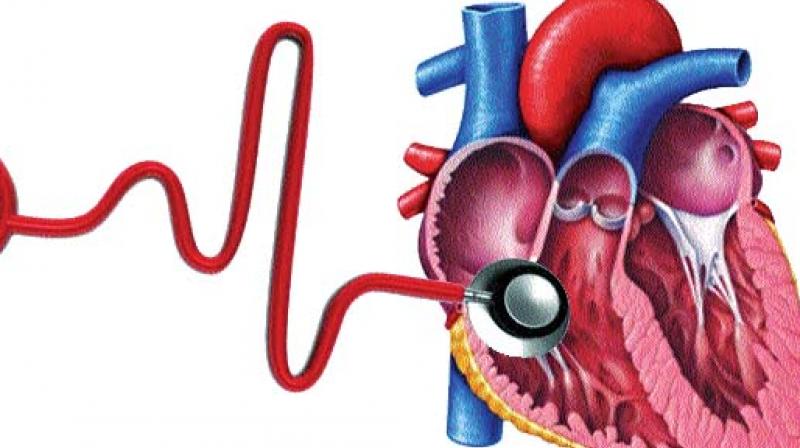Awareness can ward off 90 per cent stroke cases

Chennai: Stroke is a leading cause of death and disability globally, and can impact anyone affecting their body, mobility and speech, say medicos.
On World Stroke Day, neurologists state that awareness of risk factors, timely treatment at stroke centres can prevent 90 per cent of the stroke cases. Individual changes and the need for local policies to deliver healthier communities are some important aspects that need attention to prevent strokes.
A new concept called ‘BE FAST’ is being popularised by neurologists to monitor stroke symptoms. BE FAST implies to Balance loss, Eyesight changes, Face drooping, Arm weakness, Speech difficulty, Time to call stroke centre.
“It is difficult to find specific symptoms of stroke and many of them can be attributed to other medical reasons. This delays the apt treatment necessary for a stroke patient.
“The suddenness of symptoms like numbness, weakness, loss of balance and eyesight disturbance indicates stroke and the medical facility should be approached as soon as possible,” says Dinesh Nayak, neurologist, Fortis Malar.
He adds that people should be aware of the nearby, stroke centres to provide appropriate treatment for a stroke patient.
A large section of brain stroke patients does not reach the medical facility within one hour of the stroke, leading to delayed medical intervention.
Neurologists emphasise on the need to recognise and keep a check on the changes in body post stroke or during the first few hours.
“Stroke can occur to anyone and not only it is a silent killer, it is one of the biggest causes of disability. A stroke cuts off the blood supply to the brain and if the blood supply is not restored, a patient can lose around 20 lakh neurons every minute.
The major factors that should be checked to avoid strokes are changes in lifestyle, lack of exercise, consumption of non-nutritious food, increased stress level, smoking and irrational use of tobacco,” said renowned neurologist M. Sundaram.
Issues of concern
Various post stroke health issues also need attention, but often remain ignored. Stiffness and tightness of the muscles can often freeze the joints in painful positions and affect daily activities of a survivor. Apart from pain in paralysed muscles, especially in arms, mental capacity of the patient is disturbed. Post stroke depression, despite being common, is usually not addressed.
“Around 30 per cent of stroke patients develop post stroke depression. Post stroke depression is associated with increased cognitive impairment that can worsen rehabilitation outcomes. Improvement of depressive symptoms has been associated with a better functional recovery.Therefore, mental health needs to be monitored for stroke survivors,” said Dr Vivian Kapil, psychiatrist, SIMS hospital.

